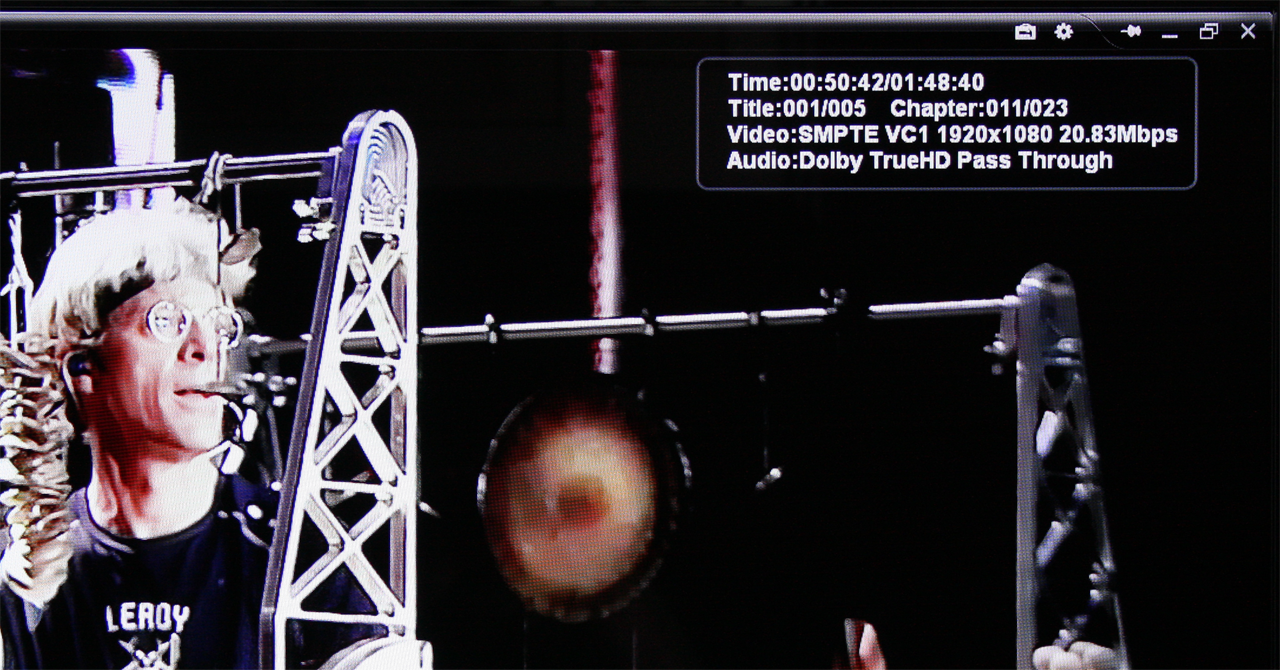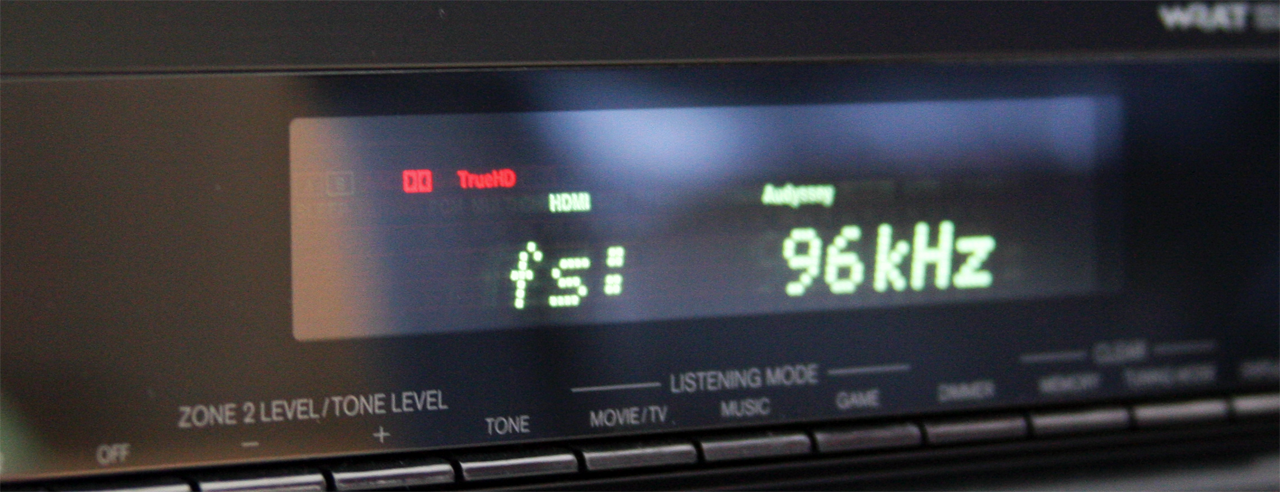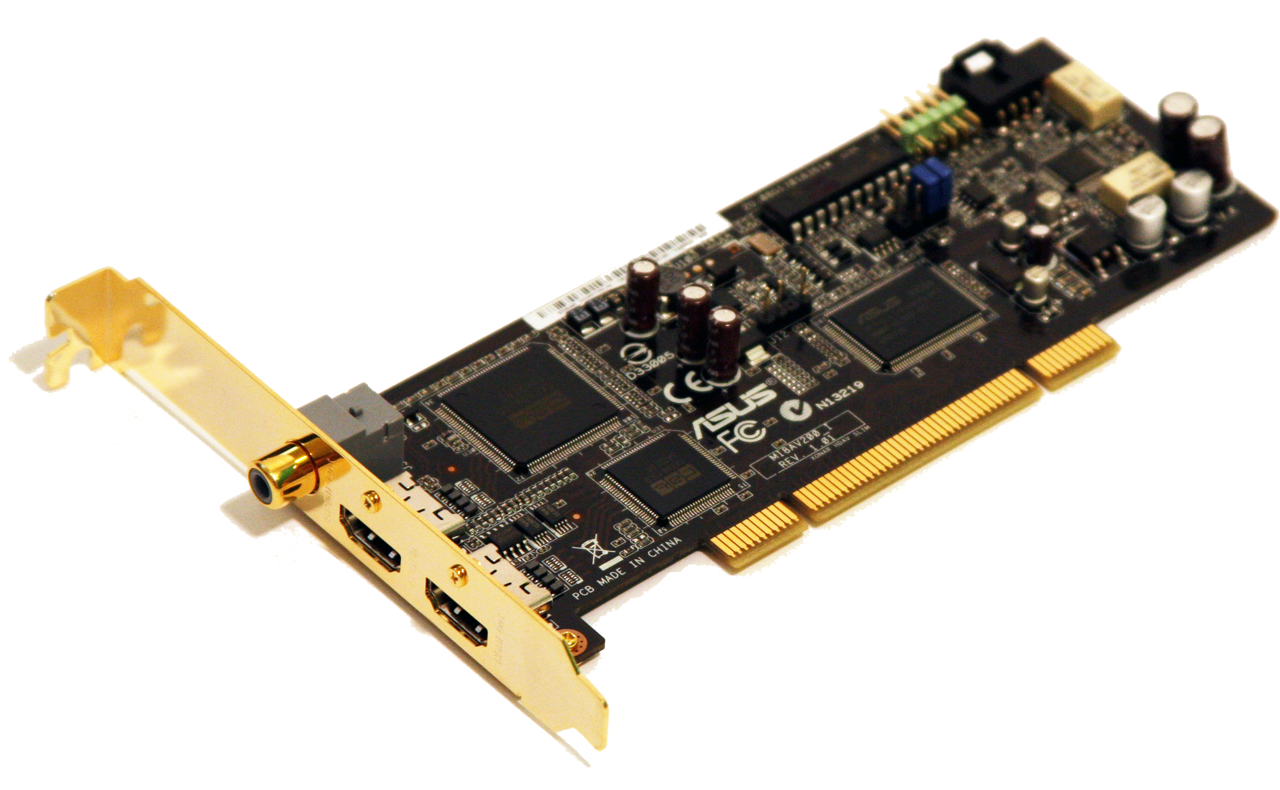The HTPC / Windows 7 Chronicles: You Asked, We Answer!
Asus' Xonar HDAV (And Xonar HDAV Slim)
One Game In Town
I know that early adopters of the Xonar HDAV 1.3 struggled along while Asus worked on the drivers. Fortunately, it looks like progress with Windows 7 support is coming along much faster. Asus sent over beta drivers for the upcoming operating system that got the Xonar Control Center applet working perfectly.
The card isn’t 100% glitch-free yet in our lab. However, it remains the one and only solution for bitstreaming the latest Blu-ray audio formats to a receiver. In working with Asus to iron out the few remaining issues, it became clear that the company is committed to getting its hardware running smoothly.
So, Xonar HDAV or D2Audio on AMD’s Maui platform? Truly, that’s going to depend on the focus of your HTPC. If movies are but a component of your existing entertainment center, you’re running no more than six channels, and you’re looking to drive your receiver into obsolescence, the D2Audio amplifier is what I would consider ample. Should it ever see a certified protected audio path, I’ll consider it the ideal component for building a one-box solution.
But for now, I’d rather bitstream to the receiver using Asus’ card. In fact, I’ll be working on a follow-up to this story focusing on piecing together a mini-ITX movie-centric HTPC leveraging the optimal combination of hardware out there today—and it’ll likely include Asus’ HDAV 1.3 Slim with its low-profile I/O bracket.
Asus' Xonar HDAV Slim
There's a lot to like about the Xonar HDAV 1.3 (we're using the higher-end Deluxe version with analog 7.1-channel outputs, even). But all of the card's extras might be overkill (and overpriced) if you're just using HDMI pass-through. Asus sent us its Xonar HDAV 1.3 Slim, which is best-suited for the folks who only need the HDMI connectors and would like a low-profile form factor for mini-ITX enclosures.
Get Tom's Hardware's best news and in-depth reviews, straight to your inbox.
My original plan was to replace the HDAV 1.3 Deluxe with this card. However, it's currently only available with the aging PCI interface. And because the MSI board in our Maui machine only includes PCI Express connectivity, the two won't play nice. I'll be revisiting this card, which shaves a good $60 off the price of the standard Xonar HDAV 1.3, when it comes time for Part 4 of this series. More info on that in a couple of pages.
Current page: Asus' Xonar HDAV (And Xonar HDAV Slim)
Prev Page Show Me The Dolby TrueHD And DTS-HD MA Next Page Let’s Get Organized-
WheelsOfConfusion Nice follow-up. A bit more entertaining than benchmarking the same suite of games over and over, I'll bet.Reply
Unfortunately you ran into that DRM breakdown problem, where one snagged link in the hardware/software chain negated the high-quality features we're supposed to be enjoying through "easy" and "transparent" copy protection schemes. DRM will make criminals of us all, one way or another: if not by trying to get around it, then when we go on a bloody rampage out of frustration from trying to make it work. -
mcboj Nice article. Made for a good read, as I'm wanting to build a HTPC very soon. Seems crazy that the combined might of all these manufacturers aren't able to make this work 100% yet. Too many cooks in the kitchen?Reply -
Luscious Great article. I've been looking into getting BD content onto a HTPC but have run into the same DRM and audio issues as you describe. DVD's were a lot easier to deal with, but BD is an entirely different animal. True, I've yet to experiment with Win7 and have only touched Vista and MCE so far. I'm probably going to wait a few more months for Win7 to show before I look into it further.Reply
I do agree in your choice of a dedicated receiver. I've got an Onkyo receiver connected to Yamaha speakers in a 7.1 arrangement that I use primarily as a source switch. Originally I had three DVD changers that I replaced with a HTPC. It's worked well, but now with a growing BD library I need to take a second look at my system. Unlike you, however, I chose to go with a dedicated gaming box alongside with passive PSU, passive GPU and a silent CPU heatsink for big-screen gaming. The multiple HDMI and audio inputs on the receiver helped out big time. I also have a dedicated BD player at the moment that I'll probably keep just in case. -
empstar Hi I'm new to HDTV or HDPC I'm using the laptop(HP media DV1125 C2D, ATI 4650) to connect to my SONY 32" LCD TV 100MHz motion flow (32W550 just bough it on 04july09) using HDMI cable 1920x1024 Max Res. but the picture/win desktop look ugly and the front in the windows exploere lookReply
ugly too. Q1) how to SET? the best res? and Q2) should I use HDMI or PC-input (D-Sub 15 pin) to connect? DVD player connected to watch movie look great. HELP... some one? -
quadrophenia I thought I read somewhere that Maui does not work if you don't have an HD tv. Can anyone confirm this? ThanksReply -
kazius There are a lot of factors that you didn't factor in: room acoustics, speaker quality, speaker placement (NEVER place the speakers directly in the corner - like as seen in the pictures), and so on. These make the audio comparison a moot point - I'd expect a richer low end may actually harm the overall listening experience in such a setup, inaccurate spectral positioning, and a somewhat muffled/smudged sound.Reply
... Of course, nearly everyone makes these mistakes, because even home theater and PC enthusiasts tend to think that like the screen or PC, higher quality components is all you actually need for better results... which is true only after you solve all the acoustic issues in your setup. -
profundido Dear Tom,Reply
I have started my quest for the holy grail of htpc 2 years ago and have found it about a month ago. I set for myself the following requirements:
-it must be 1 box that is able to handle ALL available media
-it must be user friendly and relative dummy proof: no switching audio formats and settings in between movies, just press play and experience the magic (a typical non-tech minded person must be able to play it all)
-it must serve as TV-VCR in it's highest possible quality
-the audio quality must be at high end hifi quality in such a degree that if you play FLAC from it professional hifi dealers are blown away
-video must be full-HD
-it must be able to play current videogames fluent in full-hd res
-it must be able to handle all bluray audioformats flawlessly including dts-hd, master and LPCM WITHOUT HAVING TO SET ANYTHING OR SWITCH ANYTHING in the settings of the htpc
-it must appear and look like a receiver, not like a pc in the living room
-the surround sound must meet THX reference standards and volume
my quest led me through (funny) the exact same products and their respective problems among many others. I was able just like you to get the digital passthrough to work with the Xonar 1.3 deluxe but with that card a few problems remain such as having to switch standards before playing it in the Xonar console, malformed LPCM that sounds flattened and lacking bass etc and last but not least the very slow hdmi-video switching of all Onkyo receivers so that wasn't perfect. Then I went to a hi end hifi seminar and listened to the professional audiocard of Onkyo and was totally blown away by the amazing crystal clear sound quality it produces in combination with a proper receiver that amplifies the channels seperately in a fully analogue way. That's when the light hit me. I rebuilt my entire htpc concept around this "analogue" setup and left the trail of the "immature hdmi" path. The result was amazing. 1 time calibration with the aid of Vista Ultimate built-in room correction and I was in the middle of the best htpc experience I had ever witnessed. I'm so happy with the result since it meets all the criteria of the holy grail. I also store and stream bluray content in full size on a 6.5TB windows drive at the speed of full gigabit (RAID 8*1TB) and play it with Arcsoft TMT 3. High dev TV functionality is provided with Firedtv, an austrian solution that allows digital satellite HD streams to be displayed directly on the pc with a modified version of DVB viewer as software (more userfriendly). For the analog amplification And all that in a fusion remote case from Antec é voila, there's your holy grail in a slim slick box ;) -
profundido correction of missing part in above reply: For the analogue amplification of all 7.1 channels at THX ultraplus 2 standards and the volume of dolby reference I use the Onkyo 906 networkreceiver with 200watt per channel. Once the setup is calibrated, nothing else has to be done or switched on the receiver except volume control.Reply -
swt_2k Great information in this article "The HTPC / Windows 7 Chronicles: You Asked, We Answer!”Reply
Like most Media Center software users, I wanting to see a Digital PCI tuner card certify by Cablelabs; I don’t like to set top cable box. By-the-way, you cannot find the "ATI TV Wonder Digital Cable Tuner" anywhere. Sony no long lists that item. Also that item only uses the 1.0 unidirectional cable cards as opposed to the new 2.0 bi directional cable cards. Cablelabs is too slow bringing a digital cable card solution to the market.
Does any know when or where I can buy a digital tuner like the ones in current LCD TVs?
-
Shadow703793 Not sure if this was out when this was written, but there are PASSIVELY cooled 4670s. For example: http://www.newegg.com/Product/Product.aspx?Item=N82E16814102816Reply



